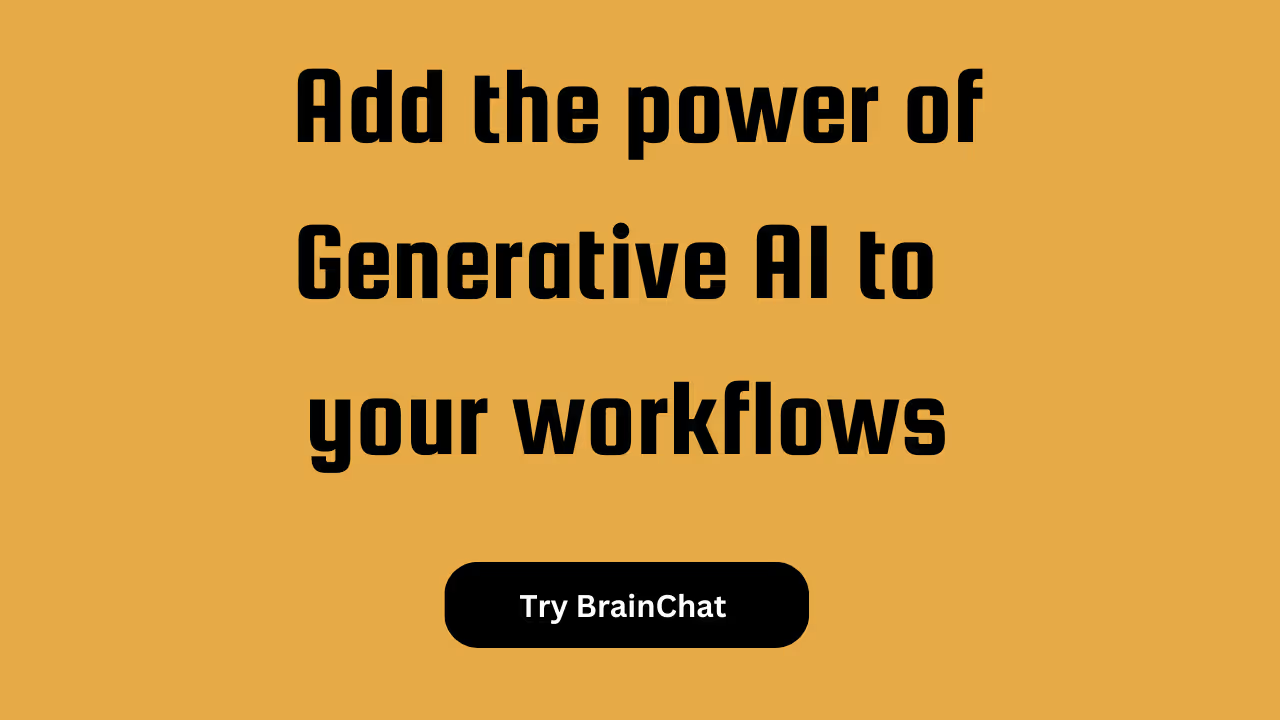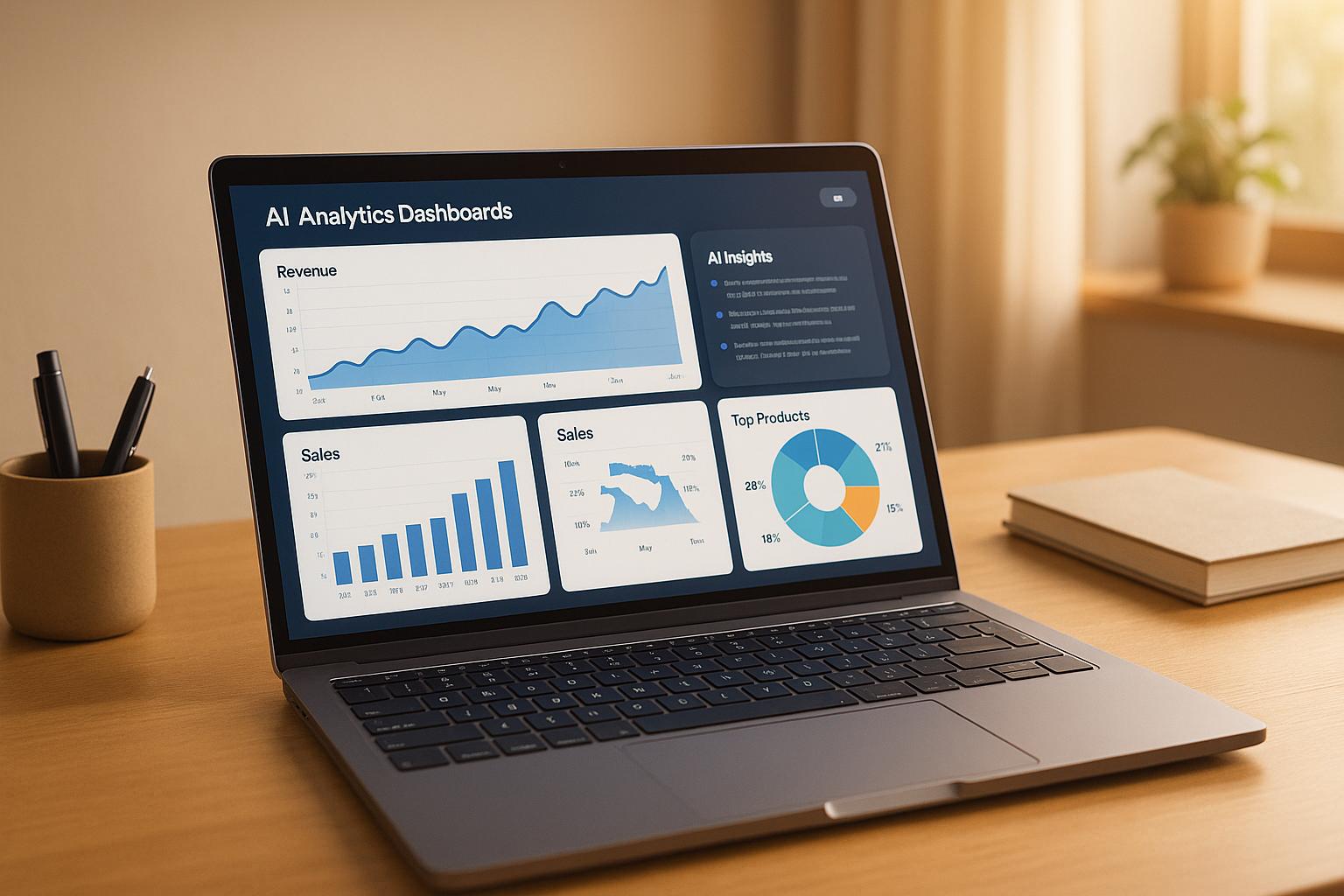
How AI is Making Marketing Teams More Productive

How AI is Enhancing Marketing Team Productivity
1. Introduction
Artificial Intelligence (AI) is rapidly transforming the marketing industry. From automating routine tasks to providing deep insights through data analysis, AI has become a critical tool for increasing productivity. Yet, many marketers wonder: how can we integrate AI without sacrificing quality and human creativity? This article explores the balance between AI-driven efficiency and maintaining high standards in marketing output.
2. AI's Impact on Productivity
AI has proven to be a game-changer in streamlining marketing processes, improving workflow efficiency, and delivering measurable results. Here are some significant ways AI enhances marketing productivity:
- Operational Efficiency: Businesses using AI report efficiency gains of up to 40%, thanks to the automation of repetitive tasks like data entry, email marketing, and scheduling. This frees marketers to focus on strategic activities, like campaign design and customer relationship management.
- Cost Savings: AI can reduce operational costs by 20-30%. With fewer errors and more efficient resource management, companies are able to allocate budgets more effectively, leading to optimized marketing spend and better return on investment (ROI).
- Customer Satisfaction: AI tools such as chatbots and automated customer service systems help increase customer satisfaction by delivering faster, more personalized responses. This leads to an estimated 10-15% increase in satisfaction scores.
- Revenue Growth: AI adoption is expected to contribute trillions to the global economy, with companies that integrate AI into their marketing seeing revenue increases of 5-10%. Predictive analytics, for example, helps identify high-potential customer segments and tailor messaging for better engagement and conversions.

BrainChat allows you to use ChatGPT (and other LLMs) at work in an organized, secure & collaborative way. Start adopting AI on your company today.
3. Critical Success Factors for AI Integration
To successfully integrate AI into your marketing efforts and maximize its potential, consider these essential factors:
- Quality of Data: The success of any AI-driven solution depends heavily on the quality of the data being fed into the system. Clean, accurate data leads to better insights and more reliable results.
- Employee Training: AI tools are only as effective as the people using them. Marketers need proper training to harness AI capabilities and integrate them seamlessly into workflows.
- System Integration: AI tools should integrate smoothly with existing systems, such as CRM platforms, to maximize productivity. This avoids disruptions and ensures that AI enhances, rather than complicates, your processes.
4. Maintaining Quality with AI
One major concern with AI implementation is maintaining the quality of outputs, especially in content creation and customer engagement. AI can generate content quickly, but quality control remains paramount. Here are a few strategies to ensure AI maintains your brand’s standards:
- Human Oversight: Even the best AI-generated outputs need human review. Marketers should assess whether AI suggestions align with brand voice, relevance, and accuracy before publishing or launching campaigns.
- Regular Audits: Routinely audit AI-driven tasks and results to ensure they meet your high-quality standards. This includes checking content, data analysis reports, and customer interactions.
- Feedback Loops: Create mechanisms for collecting feedback on AI-generated outputs. This will allow you to make continuous improvements and fine-tune the AI’s capabilities over time.
5. Bridging Skill Gaps with AI
One of the most significant benefits of AI in marketing is its ability to close the skill gap between junior and senior team members. AI tools can empower less-experienced marketers to perform at a higher level by offering real-time assistance and insights.
- AI-Powered Content Creation: Tools that provide suggestions for copywriting or content design allow junior marketers to produce more compelling materials quickly, while more seasoned team members focus on higher-level strategy.
- Data-Driven Decision Making: AI-powered analytics platforms help marketing managers make informed, data-driven decisions. This democratizes data, allowing everyone on the team to access and interpret valuable insights.
6. Addressing AI Integration Challenges
While AI has clear benefits, challenges like skepticism and a skills gap often arise during implementation. Here’s how to address common concerns:
- The “More Work” Myth: One common fear is that AI will burden employees with extra tasks. In reality, AI frees marketers from mundane work, allowing them to focus on creative and strategic projects. Position AI as a tool that amplifies human abilities, not replaces them.
- The Skills Gap: Not everyone on your team is an AI expert, but they don’t have to be. Start small with pilot projects and provide focused training on AI tools. Gradually introduce AI-driven systems to build confidence and skill over time.
- Reinforce AI's Value: Explain how AI mastery isn’t just beneficial to the company; it’s also a valuable career skill for marketers. As AI becomes more prevalent in marketing, expertise in AI tools will be essential for personal and professional growth.
Wrapping up
AI is a powerful force in reshaping marketing, driving productivity gains, and bridging skill gaps. However, the key to success lies in balancing AI’s speed and efficiency with human-led quality control. With careful integration, continuous learning, and human oversight, AI can complement your marketing team’s creativity and strategy.
Investing in AI training and fostering a culture of adaptability will ensure that your team is ready to leverage AI’s full potential. As AI continues to evolve, marketing teams that embrace it will be better equipped to innovate, optimize processes, and outperform the competition.
Ready to get started? With the right approach, AI can be your marketing team’s secret weapon, helping you achieve more efficient, effective, and creative campaigns.
Turbocharge your team with BrainChat AI
Teams using BrainChat report a 40% boost in task completion speed. Imagine what your team could achieve.
%20(1).png)



